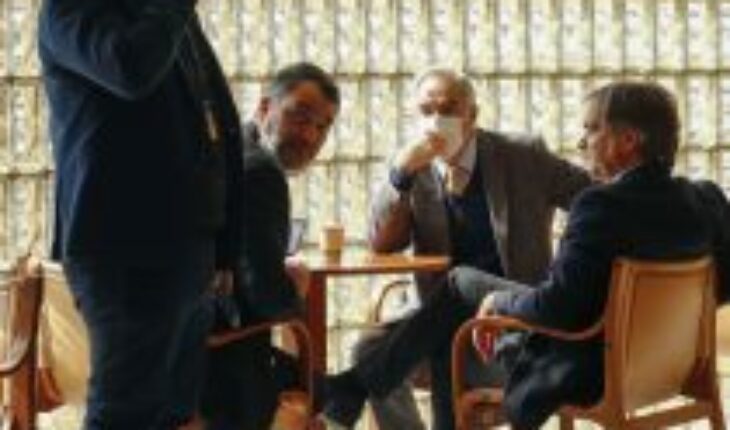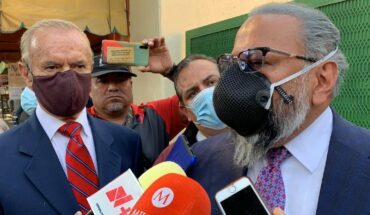This 2023 will be a very special year for Chile, not only because a constitutional proposal will be voted on again by the Chilean people on December 17, but it will also be within the framework of the 50th anniversary of the 1973 coup d’état.
Hence, it will be a highly symbolic year for the country and can be seen as a historic opportunity for the right in Chile to position itself from political liberalism, leaving behind anti-democratic ideological fanaticism and a market economic fundamentalism, which has only led it to be a sector incapable of having a broad and plural political project.
This is what has happened during the last 50 years, where the right has contributed little and nothing to the political reflection of the country, being completely encapsulated in the neoliberal doctrine, as the center-right academic Hugo Herrera has well stated, who has questioned the deep ideological narrowness and economism of his sector, denying his own history. which has been much broader (liberal-classical, national-popular, liberal-Christian and social Christian).
Consequently, Herrera has argued that the right, heir to the unionist thinking of Jaime Guzmán and the so-called Chicago Boys, has reduced politics to mere management, thus depoliticizing its use from a neoliberal orthodoxy, which from an individualistic social atomism has not been able to think of collective expressions as a common good. nation, national solidarity, historical destiny (1).
It is a matter of seeing all the existing right-wing political parties, from the Republican Party, through the UDI, National Renewal and Evópoli, which, although they may show certain differences in terms of greater or lesser value conservatism, are all fervent followers of neoliberal dogma.
A good example of this was the reaction of the right in Chile during the social outbreak in the country and what happened throughout the drafting of the new Constitution, where this sector was not able to install a democratic and dialoguing political discourse, showing, on the contrary, a brutal repression of the people of Chile and a resistance to any attempt at institutional transformation.
It can be said that the Chilean right has shown certain democratic advances, by signing two agreements for a new Constitution, both in 2019 and last 2022, but they seem to respond more to a certain ideological pragmatism, and to the will of certain specific leaders (Mario Desbordes and Javier Macaya), than to a long-term country view that breaks with the pillars of neoliberalism.
Likewise, there will be those who point out that there were sectors of the right that were for the approval of the entry plebiscite in 2020 and that they were open to building bridges within the Constitutional Convention, but quickly those sectors were completely co-opted by the reactionary and denialist ultra-right.
It is true, from the forces of the left and transformers within the Constitutional Convention, from the first moment they closed themselves to a minimum dialogue with any sector identified with the right, whatever it may be, but from there to move to a campaign of Rejection based on lies and apocalyptic interpretations of the new constitutional text. He only reaffirmed his doctrinaire outlook.
Given this, the right has a new historic opportunity this year, not only to strongly condemn the coup d’état and the subsequent bloody civic-military dictatorship of 17 years, but also to be able to break with its extreme economic legacy and the deep injustice it generated, which led us to what happened in 2019.
To do this, it will have to not subordinate itself again to the reactionary and denialist ultra-right, which will surely see this year as an opportunity to vindicate the figure of Augusto Pinochet, as an anti-communist reference and against political correctness, and which will also dedicate itself to reviling the social revolt, using the expression criminal outburst, thus denying the deep malaise that still exists in Chilean society.
For the same reason, a right in Chile that positions itself from a political liberalism, must build a narrative that stops seeing the State as a mere burden and to which power must be limited as much as possible, but see it, on the contrary, as a space that contributes to the democratic coexistence of the country. which is still fractured.
In turn, it must stop reducing rights in a minimalist way to mere life, liberty and private property, extending them to social rights as well, thus questioning thebsidiaredad imposed in the current Constitution and understanding that more State is more power to citizens, not to political operators, as neoliberal thinking has always caricatured.
If we do not make that liberal turn of the right, it will only benefit the extremes and those who are not interested in the least to collaborate to build a more just and peaceful country, once again showing off the possibility of ceasing to see ourselves as enemies and voting in favor of a new Constitution democratically, which leaves behind decades of mistrust and fear.
Let us hope, therefore, that the right will rise to the occasion this time and put Chile above its petty particular interests and be willing to talk with those who think differently, leaving behind an economic doctrine that was imposed by force and naturalized over time, as if it were a revealed and unobjectionable truth.
1:https://www.ciperchile.cl/2020/07/04/derecha-economicista-y-centroderecha-politica-en-chile/
Follow us on
The content expressed in this opinion column is the sole responsibility of its author, and does not necessarily reflect the editorial line or position of El Mostrador.





